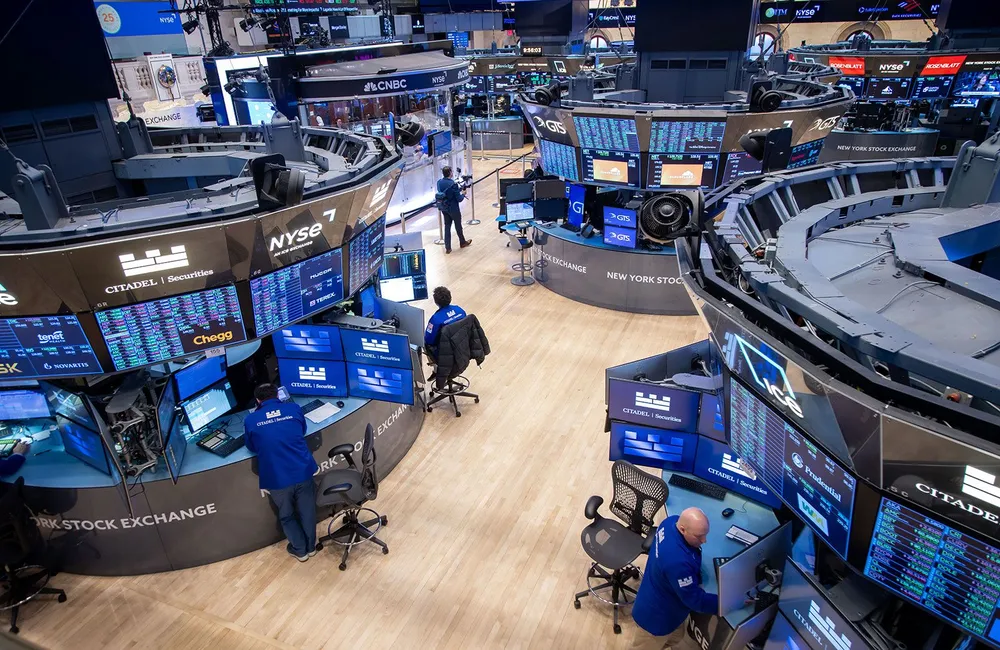Every fund manager has their marketing patter, and much of it is the same as the next person. They detail their proprietary process for narrowing the investable universe (must be a lot of magic potions) and they show genius placing stock bets in their portfolio (what, no losers?) and then submit the best performing numbers of the fund in their stable.
Then there’s the part that every manager, for some reason I can’t explain, thinks is compulsory. “You have skin in the game” and “You are invested with us." Sometimes, the earnest vow is even more forceful, as here in statements taken from pitch documents in the past week:
“Experiencing market declines or underperformance is never enjoyable. Our investable wealth (100% of it) is in our funds only. To our fellow investors we say: we feel your pain.”
“I am frankly flabbergasted by the events of the last 6 months; the investment rules that have for 20 years served me well [soared] out the window. Still, with all of my investable asset base in the fund and a significant portion of the asset base of most friends and family who’ve invested alongside us, I’ll continue to work hard to repair the poor performance of the last 6 months.”
Is that what we want from our fund managers? I want them to lead a balanced life, with good relationships with family and friends, and to bounce out of bed refreshed and ready for another day of calm, rational analysis. Not breaking out in a sweat because their net worth is tied up in their fund, mum and dad have given up the family home and their friends are ignoring the elephant in the room.
How does this utter lack of diversification fit with Investing 101? What if they are a bond manager, they must have some equities, right? And yet, while every financial planner will tell you to run a diversified portfolio according to your future goals, here are the smart fund managers boasting that 100% of their investable assets sits within one fund. Why that is smart or desirable?
What is the conversation like at home with the other-half when the one and only investment is down 30%?
“Darling, you know how we’re saving for a bigger house because we just had our third child, and the first two are already sharing a room? How do you want a decent garden? I’m sorry, I invest all the money in one fund, and it crashes down and we no longer have enough deposit. Oh, and since it’s my own fund, my salary and bonus are going to take a hit, too.”
No fund manager glances in the mirror and mutters, “Wow, I really hope my fund does badly in the next few years.” It dictates their pay, their career advancement and potentially the worth of their company. They don’t have to risk their house. Being invested in the fund has been overplayed as proof of 'alignment of interest'. If an investor trusts a manager to handle the retirement savings of themselves then there is already a complete alignment. There’s no need for the “we’re in this together.” What does it matter to an investor if the manager shares in the pain? Does anybody say, “Oh, that’s OK, at least you’re losing money not just me”? Is it meant to demonstrate more commitment? You will not get better results by working 16 hours a day instead of 12. Better to help take care of the family over an afternoon.
And when you say I have 'all my investable wealth in this' then nobody comes out and tells you how much of their total wealth is so-called investable, and what that even means. If like many (younger) Australians, the majority of wealth is locked in the Great Australian Dream, then perhaps "investable assets" accounts for 10% of their wealth.
Stop it, fund managers, it’s stupid. We know you want to win. Who doesn't? “You’re giving me enough pain without having to share your pain.”
And that brings us to performance fees.
So is it part of this more alignment of interest argument or just another way to take a fee? Love them or hate them, there is no market standard but they should be structured to be fair to investors. Verify these characteristics and determine whether the cost on your fund is justified, and inexplicably, there may be a charge vacation coming through.
One of the many messages investors get when markets drop is this handy reminder from Shane Oliver of AMP:
“The daily swings in the share market every day they’re down just as much as they are up, with just over 50 per cent of days ending with positive gains. But if you look only monthly and account for dividends, the historical record tells you that you will get bad news only about one-third of the time. That was the year that brought what I consider the enduring value of Invesco’s paper even on a calendar year basis, data going back to 1900 surge makes a loss only 20% likely for Australian shares and 26% for US shares. And if you take it all the way out to once a decade, since 1900 positive returns were experienced 100% of the time for Australian shares and 82% of the time for US shares.”
Quick spike up and down in markets tend to set off algorithmic/computerised responses and stop-loss orders, rather than indicating overall market sentiment. Such as this week, when City Index analyst Tony Sycamore noticed 10,000 ASX200 futures contracts were sold just before the open of our trading day following a movement by an overseas hedge fund rapidly pushing the market down. He said:
“Over a very short period of time about $1.75 billion of selling went through. You would think that would usually be a get-me-out order, I've seen on trading desks. Just get the hell out, I’m done with the pain.”
Other investors may panic and join in the sale, particularly as analysts begin to rationalize the decline with all their usual excuses, and a bearish tone can take root. Given the fear of catching a falling knife, it's during times of drawdowns that future returns are at their highest, yet who knows where the bottom is.
And so to the election.
Lets go to a factory today where ya put on a high viz vest and use the equipment. It was followed by a visit to my old school to announce cash for a swimming pool. A road needs an update for a marginal electorate. Or $4.5 million to construct a new distillery for a profitable listed company? Hold a news conference where reporters shout gotcha quiz questions and write headlines of outrage.
The second leader debate was a bellicose yelling match, and Nine’s committee table and rude technology broke the polling system:
One could write off the United Australia Party as a sideshow, with their 3% home loan caps for five years (Hint: banks stop giving home loans) and repatriating 1 trillion buckaroos of super from overseas (and preclude 98% of companies). But money buys votes and influence, and the party has dealt itself into the outcome by issuing preferences to the Liberal Party. “I have pledged to ensure that:” Clive Palmer said in a statement to The Saturday Paper.
“I personally write all the ads. Because I started out in campaigning years ago with the National Party, I ended up being [campaign] director and state spokesman, so it’s easier for me to write the ads than it is for me to tell someone how to do it.”
Pull up your expenditure figures, how the fuck can it be that out of the $50 million you’re spending on ads, you can’t find a few thousand dollars to pay an editor? Your ads with grammatical and stylistic inconsistencies are giving me a headache.





















